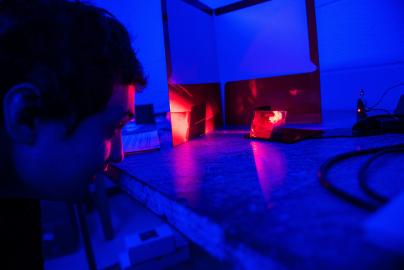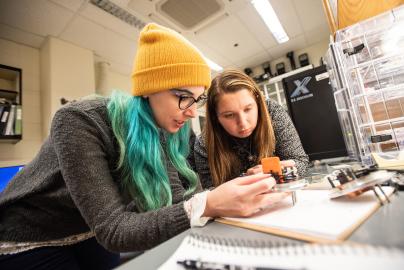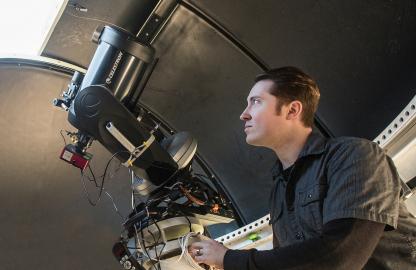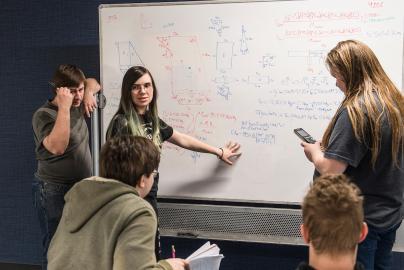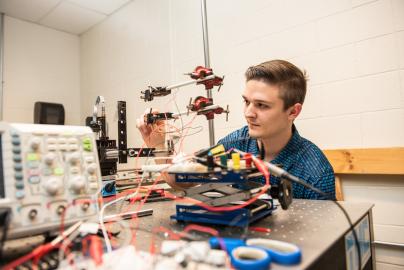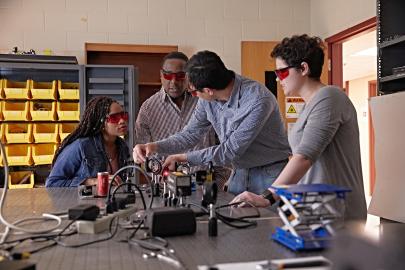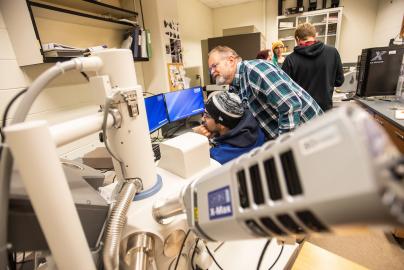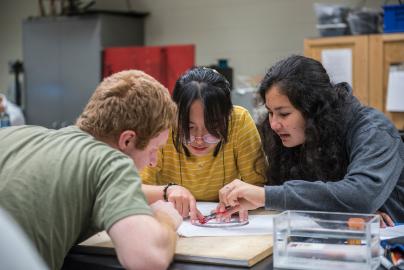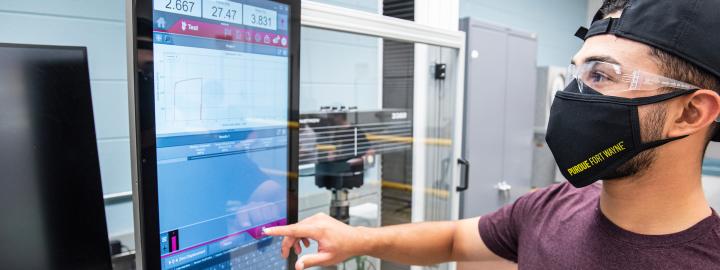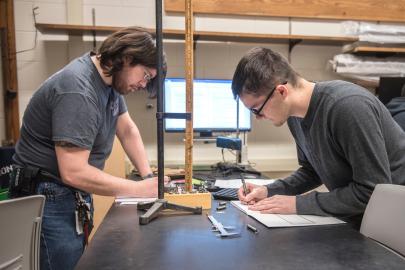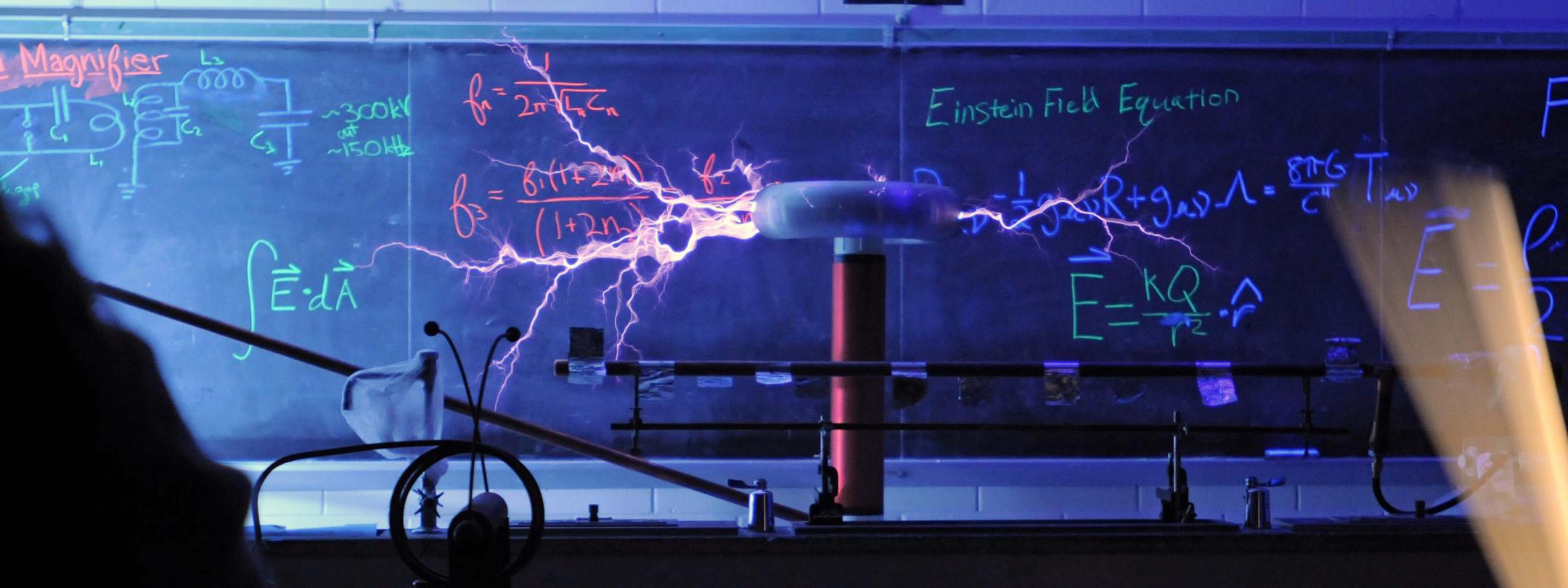
Physics Programs
Physics—where innovation and understanding become a unified front.
Did you know that physicists developed the underlying technology for cell phones, computers, and tablets? They also created the image sensors used in cameras, magnetic storage in hard drives, the MRI—the list goes on, but you get the picture.
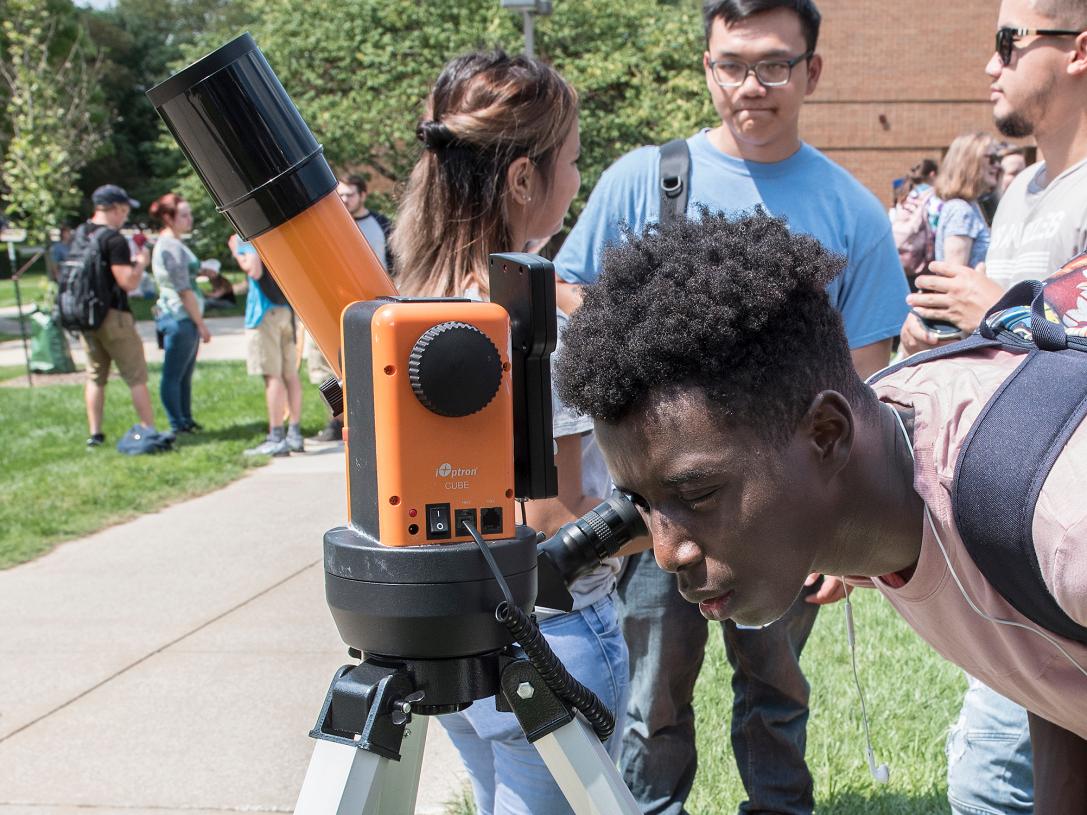
Physics (B.S.) with Concentration in Astronomy
Astronomy and astrophysics are the endeavor to understand the universe and to explain the origin of celestial objects and phenomena. It involves both planetary science and stellar science. The astrophysics track will require spectroscopy and instrumentation classes, in addition to the astronomy core classes. As you study, you’ll enjoy working with other students in performing cutting-edge research with the modern equipment available to you as a Mastodon.

Program
Highlights
Program Highlights
- Development of analytical-thinking and research skills
- Experience with circuit design, field-programmable gate arrays (FPGAs), and microcontrollers for instrumentation development
- Understanding of the importance of experimentation and data analysis
- Support from the Mastodon community
- A prestigious Purdue degree
career and salary data
How far will you go?
General labor market and salary data are provided by Lightcast via O*NET and may not represent the outcomes experienced by Purdue Fort Wayne graduates in these programs. Purdue Fort Wayne graduates in these programs may earn salaries substantially different or less than the amounts listed. Salary and employment outcomes vary by geographic area, previous work experience, education, and opportunities for employment that are outside Purdue Fort Wayne’s control. Purdue Fort Wayne does not guarantee employment placement, salary level, or career advancement.
Student Learning Outcomes
Upon completion of this degree, students will be able to demonstrate the following learning outcomes:
- Have the skills to enter a career in astronomy, optics, data analysis, or software
- Ability to pursue graduate education in physics, astronomy, or engineering
- Aerospace or Aeronautics Engineer
- Analysist
- Data Scientist
- Observatory Technician
- Software Developer
- Systems Engineer
- Technical Engineer
